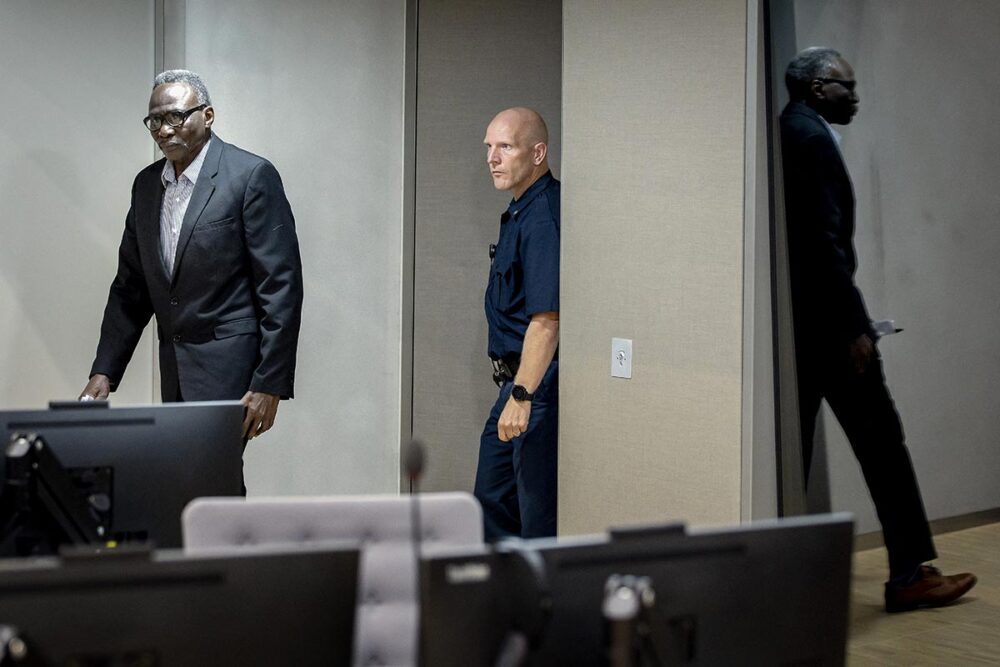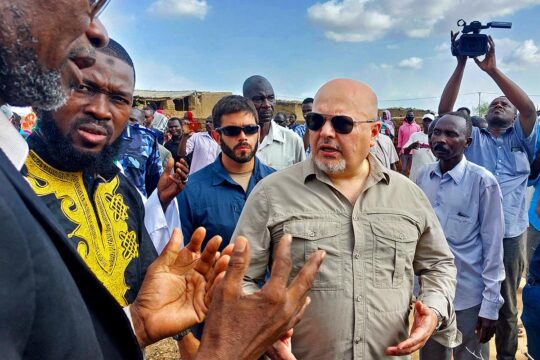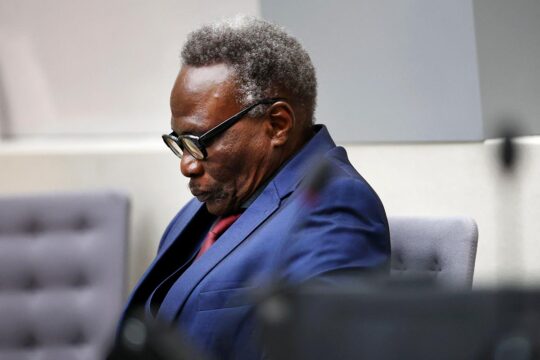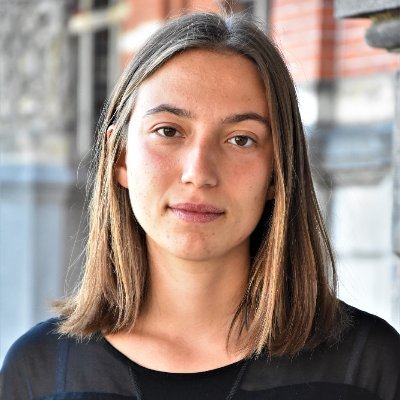“There is a man sitting behind me in this courtroom,” said lead defence lawyer Cyril Laucci, who was “utterly unknown” until his name was first mentioned in a 2007 arrest warrant by the Hague court. During the Darfur conflict in the early 2000s, Ali Muhammad Ali Abd-Al-Rahman ran a pharmacy in a remote village in western Sudan, continued Laucci. “A small pharmacy” he emphasized, drawing lines in the air.
Abd-Al-Rahman, now 74, is accused on 31 counts of war crimes and crimes against humanity allegedly committed between 2003 and 2004 in West Darfur, Sudan. According to the International Criminal Court (ICC) prosecutor, he was a leading member of the Janjaweed government-backed militia, which is accused of mass killings and rapes in the counter-insurgency called by former President Omar al-Bashir against central and sub-Saharan African rebels. The defendant is suspected of passing information and orders between the central government and the militia, and of participating in some attacks against the civilians.
His trial began in April 2022, two years after he surrendered himself voluntarily to the ICC. It now counts 725 “participating victims”. The defendant pleaded not-guilty to all charges. This is the first ICC case for crimes committed in Sudan, which is not a state party to the Court. But in 2005, the situation in Darfur was referred to the Court by the UN Security Council. In 2010, the United Nations estimated that some 300,000 people had died and 2.7 million had been displaced since the start of the conflict in 2003.
When on April 15 this year violence erupted once again in Sudan and spread to Darfur, ICC Prosecutor Karim Khan awaited a few months to point out that the Court has jurisdiction over Darfur and to declare on July 13 that his team has “already started investigating”. He added that they are looking into allegations of “looting and judicial killings, extrajudicial killings, burnings of homes”, not only in West Darfur but also in its northern part.
We see the “same horrors, same crimes” perpetrated now as in the 2003 and 2004 conflict, Laucci said in court, turning towards the gallery. The ongoing conflict has represented a serious challenge to the defence investigations, he explained, adding to insufficient cooperation from the Sudanese authorities.
Lack of cooperation with Sudan
“The defence received no cooperation from the Sudanese authorities during our investigations,” said Laucci. His complaints are two-fold. First, Sudan never provided some key documents requested by the defence, such as the civil status, and the military and criminal records. These documents could contain information regarding the nickname Ali Kushayb and the defendant’s alibi for two of the four crime locations, added Laucci. According to the lawyer, this lack of cooperation compromises the fairness of the trial. He therefore called for his client to be acquitted of all charges.
Second, getting visas has been problematic. The defence team was only granted a 30-day visa limited to the area of Khartoum, where they went in June 2022. But, he stressed, the capital remains far away from the town of Garsila, where Abd-Al-Rahman lived and worked. This made it hard to find childhood friends or costumers from his pharmacy who could testify in court.
Laucci stressed how the Office of the Prosecutor was allowed to carry out multiple missions to Sudan from 2005 to 2023 and could cooperate with organizations who work on the ground in Darfur. He also argued that the Office of the Prosecutor spent an “astronomical sum” of 39 million euros on the Sudan investigation from 2005 to 2022, compared to the 75 thousand granted to the defence and once extended.
Sudan is not a state party to the court, continued Laucci, nor has it signed a “regularly ratified cooperation agreement” for the court to investigate in its territory. And since it is now plunged into a new armed conflict, the defence has limited to no communication with the witnesses, who often do not even own a phone, making it “impossible to implement the slightest witness protection on the territory”, said Laucci.
“I am not Ali Kushayb”
The 56 witnesses who have already appeared before the ICC during the prosecution’s phase testified to the crimes that civilians of the Fur communities suffered, including murder, looting, destruction of property and livestock, rape, torture, forced transfer of population, and cruel treatment. Some of them connected these crimes directly to the defendant.
The defence said it will not focus on the nature of the crimes, as their client can only speak of the “lack of connection with the charges”. Over the next few weeks, they announced 14 witnesses, including expert witnesses, to support the three following lines of defence.
First, that the man sitting in court is not and has never been known as Ali Kushayb. Associate defence lawyer Iain Edwards recalled his client’s first words as he appeared before the judges: “I am not Ali Kushayb”. “His unambiguous denial that he is Ali Kushayb could not have been made clearer and raised earlier," said Edwards, and listed 10 witnesses who will testify before the court that they had never heard of this alias before the arrest warrant. They have all known the defendant from either his private or professional life.
Second, trying to demonstrate that he could not possibly have been a militia leader. The lawyers pointed to his career in the health service department of the armed forces, where he reached the rank of warrant officer, his retirement in the 1990s and the opening of his pharmacy. Then, after the civil war, they said he has joined the Central Reserve Police forces. Both Laucci and Edwards asked why coming from this background their client could have been a militia leader. Abd-Al-Rahman smiled wrily.
The defence will also ask witnesses to define the Janjaweed militia’s position within the Sudanese military landscape. The title of “aqid al-ogada”, colonel of colonels, that was attributed to the defendant by the prosecution will also be explained. Edwards said that witnesses will tell how it bears more of a tribal than a military function in Sudanese society.
Third, witnesses will also go into the details of Sudanese law, said Laucci. According to the lawyer, crimes against humanity and war crimes were not included in the country’s laws at the time of the events. Sudan only codified them in 2007. The element of knowledge of the crime is missing, he added. This third line of defence is rather theoretical, he added, as the defence denies Abd-Al-Rahman carried out any crimes.
On Monday October 23, the first witness in the defence case appeared before the chamber, in closed session. Defence witnesses are expected to testify until around early December.








